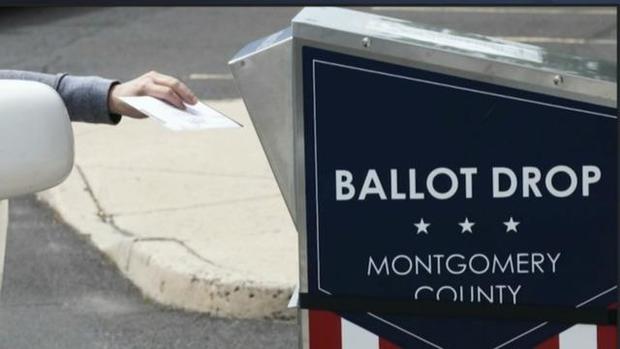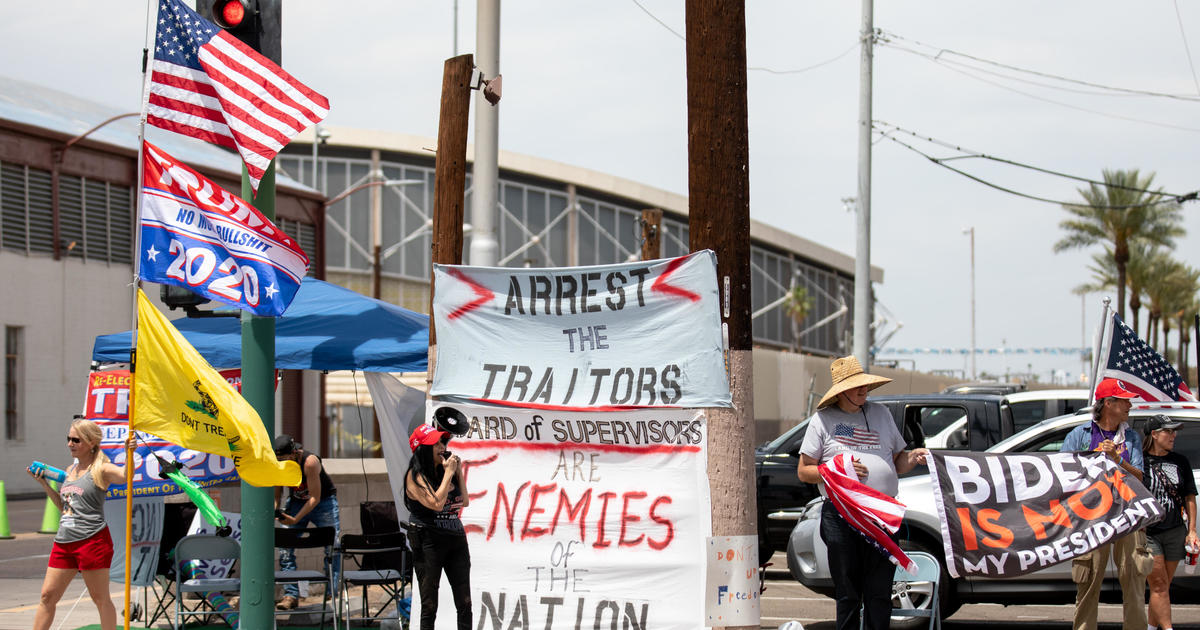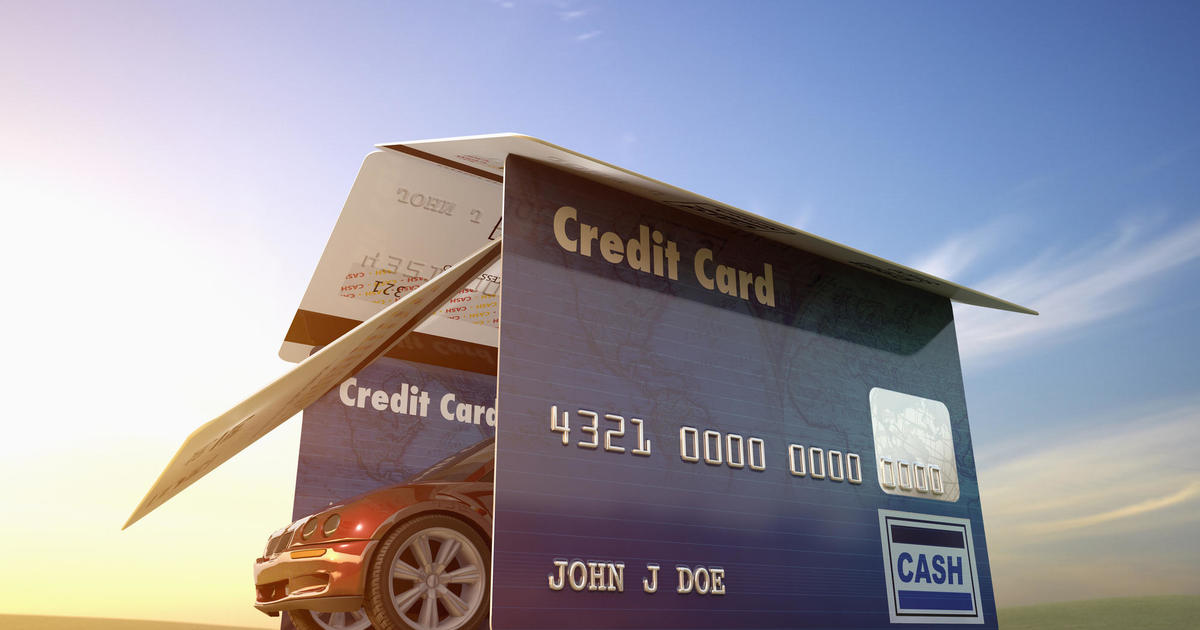"Catastrophe:" Elections experts fear what primary mayhem may mean for November
Washington — With five months to go before tens of millions of Americans head to the polls, voting rights groups and elections experts who watched chaos unfold in states that recently held their primaries are sounding the alarm about what Election Day in November may hold, amid the coronavirus pandemic.
"I'm concerned that if we're already seeing failures happening during these lower-turnout primary elections, come November when turnout will be two to three times what it was, the problems will still persist and we'll have catastrophic failure," Michael McDonald, a political science professor at the University of Florida and expert on elections, told CBS News.
While some states have been able to navigate the uncertain landscape brought by the coronavirus, others have seen their primaries plagued by long lines, technical snags and widespread confusion.
In Georgia and Nevada, voters waited in line for hours to cast their ballots because of the consolidation of polling locations and a shortage of poll workers, who are typically older and who opted to stay home to protect themselves and their health.
These problems were compounded for voters in Pennsylvania and Wisconsin, many of whom did not receive their absentee ballots on time. Adding to the chaos in Georgia, which experienced more hiccups than any of the states that held primaries on June 9, were issues with its new voting machines, which were deployed for the first time. State and local elections officials blamed each other because many poll workers had not been trained on the new machines, causing further delays.
Now, with five months to go before the November elections, experts say states need to ramp up vote-by-mail, make it safer for voters to submit absentee ballots and improve their technical capabilities to handle the influx of requests for and return of mail-in ballots in order to minimize Election Day mayhem.
Aklima Khondoker, Georgia state director for the advocacy group All Voting is Local, said her organization is pushing for more drop boxes, where voters can return absentee ballots without postage and without coming into physical contact with another person.
"In this COVID time, people want to have safe and available and free mechanisms for them to cast their ballots," she said.
In April, Georgia's board of elections approved a new rule allowing counties to set up drop boxes for the June primary. The state requires them to be set up on county or municipal government property, and the locations must have adequate lighting and a video recording device for monitoring. Several Pennsylvania counties also set up drop boxes for mail-in ballots, though Hannah Fried, national campaign director of All Voting Is Local, said some, like Philadelphia, lacked an adequate number.
"It's not enough to say we're going to have them, but are they available to people who need them most? Are they placed in the way that takes the place of a mailbox, where someone who may not have access to a mailbox can return their ballot?" she told CBS News.
Other states that allow for drop boxes in some or all of their counties include Arizona, California, Colorado, Kansas, Montana, Nebraska, New Mexico, Oregon, Utah and Washington, according to the National Conference of State Legislatures.
In Colorado, one drop box is required for every 30,000 active registered voters in each county, and the state this week rolled out a program — bolstered by federal dollars from the $2.2 trillion coronavirus relief package passed by Congress in March — to fund up to 100 more drop boxes. Washington, meanwhile, requires county auditors to establish a minimum of one drop box per 15,000 registered voters.
McDonald said for the general election, expanding vote-by-mail will be key to protecting the right to vote during a public health crisis.
Five states hold all-mail ballot elections — Colorado, Hawaii, Oregon, Washington and Utah — while 28 states and the District of Columbia have "no-excuse" absentee voting, or allow voters to vote absentee without providing an excuse for why they have to do so. All the battleground states are among those that don't require an excuse, with the exception of New Hampshire, which this year will permit those concerned about the coronavirus to vote absentee, according to New Hampshire Public Radio.
Some of the pandemic primaries were also hampered by the surge of voters mailing in their ballots, stressing local and state election officials and the postal service. Several states mounted efforts to extend the deadline to receive them, which McDonald said states should consider doing for the general election.
Alaska, for example, extended its deadline by more than two weeks, while Wisconsin attempted to provide voters there with six extra days to return ballots, though the efforts were blocked by the U.S. Supreme Court.
Fried noted that federal law already provides overseas voters, including members of the military, 10 days from an election date to return their vote-by-mail ballots, so "it's a reasonable step for a state to extend the deadline, since there is existing law that permits it."
But she said state leaders need to begin working on legislative fixes or exercising their authority to extend the deadlines sooner rather than later to avoid confusion closer to the election.
"It's important that states do this now, that if states are going to make these changes, which they should do to make it easier for people to vote in this unprecedented environment," she said.
Also in preparation for the November election, the Wisconsin Elections Commission this week approved a letter and absentee ballot request form that will be mailed to roughly 2.7 million voters, while Michigan and Ohio are sending absentee ballots request forms to all registered voters.
While voting rights groups are urging states to bolster vote-by-mail, President Trump has been a staunch opponent of those efforts.
In May, the president threatened to withhold federal funds to Michigan and Nevada as they worked to expand access to mail-in voting, claiming without evidence it led to voter fraud. Mr. Trump, however, voted by mail in Florida for the state's March primary.
For states that experienced technical glitches, like Wisconsin, easy fixes are available, including by purchasing additional server space.
"A lot of these are not super complicated problems," Fried said. "They just require time and attention and political will."
While experts predicted the 2020 election would bring high turnout in response to the Trump presidency, a confluence of other factors — the coronavirus pandemic and economic havoc it has wrought, as well as the eruption of civil unrest in response to Floyd's death — have created a perfect storm, underscoring the need for states to be prepared for November.
"It's trite to say this is the most important election of our lifetime, but it feels like this is the most important election of our lifetime," McDonald said. "There's just going to be this incredible demand for voting. Election officials would've been stressed under normal circumstances, and now we've got everything else crashing down upon it. It's the storm of the century and another storm of the century."




